
Samuel Alfred De Grasse was a Canadian actor. He was the uncle of cinematographer Robert De Grasse.

Henry Arthur Barrows was an American actor who appeared in films from 1913 to 1936.
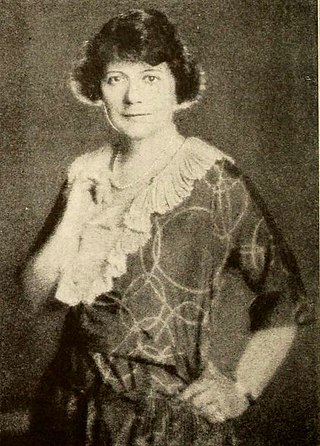
Marion Fairfax was an American screenwriter, playwright, actress, and producer.

Richard Oswald was an Austrian film director, producer, screenwriter, and father of German-American film director Gerd Oswald.

Marshall Ambrose "Mickey" Neilan was an American actor, director, producer, and screenwriter, whose work in films began in the early silent era.

Paul Mahlon Powell was an American journalist, director, producer, screenwriter, and actor. Powell was most active during the silent film era and is best known for directing Mary Pickford in Pollyanna (1920).

Henry King was an American actor and film director. Widely considered one of the finest and most successful filmmakers of his era, King was nominated for two Academy Awards for Best Director and directed seven films nominated for the Academy Award for Best Picture.
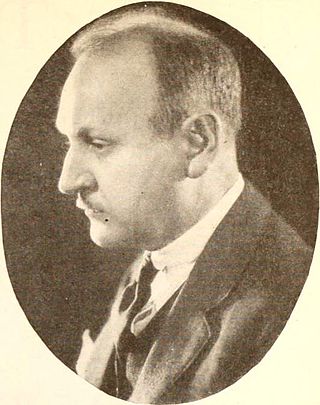
John Stuart Robertson was a Canadian born actor and later film director perhaps best known for his 1920 screen adaptation of Dr. Jekyll and Mr. Hyde, starring John Barrymore.

Frank Spottiswoode Aitken was a Scottish-American actor of the silent era. He played Dr. Cameron in D. W. Griffith's epic drama The Birth of a Nation.
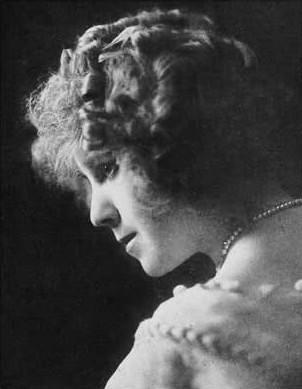
Mignon Anderson was an American film and stage actress. Her career was at its peak in the 1910s.

Joseph W. Girard was an American film actor. He appeared in more than 280 films between 1911 and 1944. He was born in Williamsport, Pennsylvania, and died in Woodland Hills, Los Angeles.

Herbert Prior was an English silent film actor. He appeared in more than 260 films between 1908 and 1934. He was born in Oxford, Oxfordshire, and died in Los Angeles, California.
Maurice Elvey was one of the most prolific film directors in British history. He directed nearly 200 films between 1913 and 1957. During the silent film era he directed as many as twenty films per year. He also produced more than fifty films – his own as well as films directed by others.

Edward Marshall Kimball was an American male actor of the silent era. He appeared in more than 60 films between 1912 and 1936. Like many older actors of the Victorian and Edwardian eras, he enjoyed a varied stage career on and off Broadway before entering the silent films.

William Welsh was an American actor of stage and the silent era. He appeared in 153 films between 1912 and 1936. He was born in Philadelphia, Pennsylvania, and died in Los Angeles, California at age 76.

George Frederick Walsh was an American actor. An all-around athlete, who became an actor and later returned to sport, he enjoyed 40 years of fame and was a performer with dual appeal, with women loving his sexy charm and men appreciating his manly bravura.
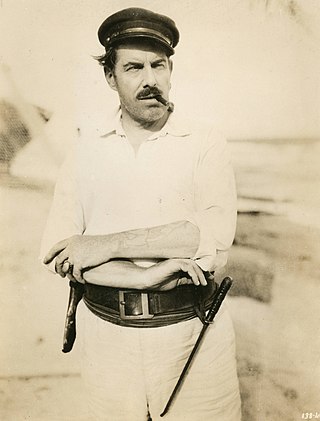
Harry Temple Morey was an American stage and motion picture actor who appeared in nearly 200 films during his career.
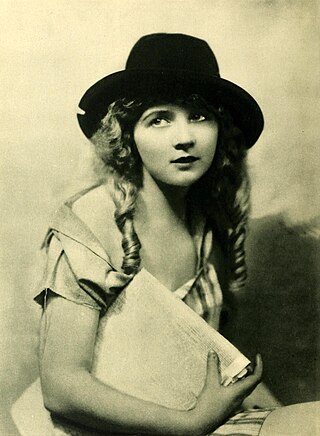
Gladys Leslie Moore was an American actress in silent film, active in the 1910s and 1920s. Though less-remembered than superstars like Mary Pickford, she had a number of starring roles from 1917 to the early 1920s and was one of the young female stars of her day.

Jack Livingston was a film actor in the United States. He starred in several films including alongside Jane Novak in The Golden Trail. He appeared in at least 44 feature films. His great-grandfather Philip Livingston signed the Declaration of Independence and he was also related to Robert Livingston who helped negotiate the Louisiana Purchase. In 1916 he was identified as Myrtle Stedman's new leading man at Oliver Morosco Photoplay Company.
Adrian Owen Johnson was a prolific American screenwriter during the silent film era. Johnson wrote some of Fox Film's highest grossing films. More than a dozen starred Theda Bara. His screenplay for Cleopatra depicted Antony and Cleopatra's love affair from the perspective of Hamarachi.

















